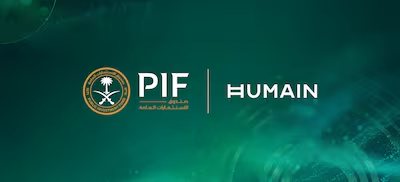D AI and the Public Investment Fund have signed a multi year Memorandum of Understanding to develop a sovereign national data infrastructure in Saudi Arabia. This collaboration is more than a technical project. It is a social and economic pledge to give people, businesses and public institutions a safer, fairer and more productive way to collect, use and share data. It aims to respect privacy, support innovation and build long term national development.
A partnership with people at its heart
This agreement shows that data systems are not just technical tools for governments or experts. They influence real lives in daily ways. Whether a parent is booking a health visit, a small company is trying to build trust with customers or a city is preparing for a major event, data plays a role. The partnership between D AI and the Public Investment Fund places human experience at the center. It aims for systems that protect people’s rights, simplify public services and create new possibilities across society.
What sovereign national data infrastructure means
Sovereign national data infrastructure refers to a secure and trusted system that keeps a country’s essential data protected, organized and governed locally. This includes storage, digital standards, governance models and tools for safe data use. In practice, this work may include creating national data centers, designing shared standards, allowing systems to communicate safely and developing clear rules for who can access data. It also involves new technologies that allow analytics and artificial intelligence to work without exposing personal details.
These foundations help governments offer better public services. They help researchers study national challenges and help companies innovate confidently while preserving trust.
Economic opportunity and national resilience
A strong data foundation is a driver of economic growth. When data flows safely and smoothly, it becomes easier for startups to build new services in areas like health, finance, logistics, education and more. Big companies can modernize faster and partnerships between public and private sectors become easier. It also helps bring long term investment to the country.
Sovereign data infrastructure also strengthens national resilience. When critical data and computing capacity are controlled locally, countries can better respond to global disruptions, cyber threats or supply chain challenges. For Saudi Arabia, a nation working to diversify its economy, this foundation supports growth in many sectors.
Human centered governance built on trust and fairness
Technology only works as well as the rules that guide it. This collaboration creates the chance to design transparent and fair governance models. These include rules about consent, anonymization and data minimization. There can be independent oversight to ensure that people understand how their data is used. There should be clear paths for raising concerns if data is misused. Ethical standards can guide artificial intelligence, especially where it influences jobs, justice or public services.
These safeguards help build trust, which is essential for people to feel comfortable using new digital systems.
Skills, jobs and inclusive growth
Building national data infrastructure creates demand for a wide range of skills. It requires data engineers, policy specialists, cloud experts, privacy lawyers and community educators. The partnership can support training programs, scholarships and public private apprenticeship models. It can also bring data literacy to schools and communities so people better understand the role of data in their lives.
Ensuring equal access to these opportunities will help distribute the benefits of digital transformation across society.
Health, education and public services reimagined
When data systems connect safely and intelligently, the benefits become visible in daily life. Hospitals can coordinate patient records to reduce waiting time. Schools can use learning analytics to personalize education. Cities can use connected systems to reduce traffic, improve commutes and lower emissions. These improvements reduce stress and create more time for people to focus on family, work and wellbeing.
Responsible innovation with protection and openness
One major challenge in national data projects is balancing openness for innovation with strong privacy protections. The partnership can address this through tiered access models. Broad and anonymized datasets can be shared for research, while sensitive data remains secure. Privacy preserving analytics allow systems to learn without exposing personal information. These tools unlock economic and social benefits while reducing risks.

Collaboration across sectors and borders
Sovereign data infrastructure does not mean isolation. Instead, it creates a safe foundation that supports collaboration with global partners on fair terms. This MoU can encourage international research, trade and mobility agreements while keeping control over critical data within the country.
Technology choices and environmental responsibility
Data centers require energy and resources. Careful design can reduce their environmental footprint by using renewable energy, efficient cooling and responsible building strategies. Technologies like edge computing can reduce the need to move large amounts of data across long distances. By prioritizing sustainability, the initiative ensures digital progress does not come at the cost of environmental wellbeing.
Addressing risks and ensuring accountability
Large scale data projects carry risks such as cyberattacks, misuse of data or over concentration of power. The agreement can reduce these risks with strong cybersecurity, transparent governance and clear rules for new uses of data. Regular reporting and community engagement ensure that the system remains aligned with public values and expectations.
Measuring success with meaningful metrics
Success is not only about system performance. It includes improvements in public services, increased startup growth, higher data literacy and stronger public trust. These metrics help ensure the project remains focused on real human benefit rather than purely technical goals.
How people will experience the change
A business owner may find compliance tasks easier. A farmer may benefit from accurate weather insights. A patient may receive more coordinated care. A student may experience more responsive and flexible learning. These changes show how national data infrastructure directly affects daily life and opportunities.

A roadmap for the coming years
While the agreement spans several years, early milestones can build confidence. Year one may focus on governance bodies, public awareness and pilot projects. Years two and three may include infrastructure rollout and training programs. Later years may expand services nationwide and integrate advanced technologies. Each stage should include feedback from real users to ensure human centered design.
Partnerships beyond technology
Success requires collaboration with universities, civil organizations and local communities. Independent ethics committees and citizen advisory groups can offer oversight. This inclusive approach helps align technical excellence with social values.
The global significance
If successful, this initiative can become an international model for combining data sovereignty with innovation. It shows that national control can coexist with global cooperation and local empowerment.
Building a future that belongs to everyone
Data represents people’s stories, needs and hopes. The multi year partnership between D AI and the Public Investment Fund represents a chance to build national infrastructure that protects privacy, supports opportunity and strengthens public trust. With transparency, fairness and inclusivity at its core, this initiative can help shape a digital future that truly serves everyone.
Do follow Gulf Magazine on Instagram.
Also Read – Saudi Arabia’s Expanding Tourism Vision Welcomes Asia With Open Arms



